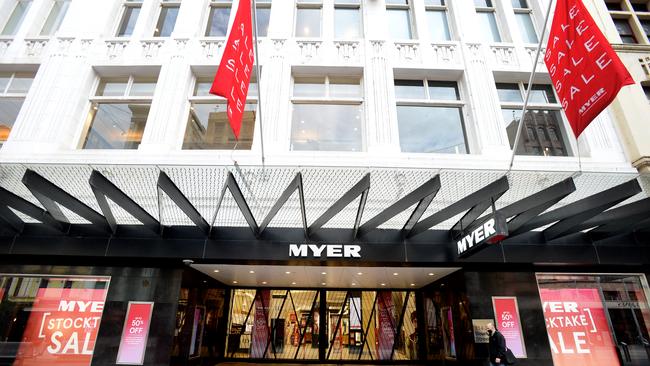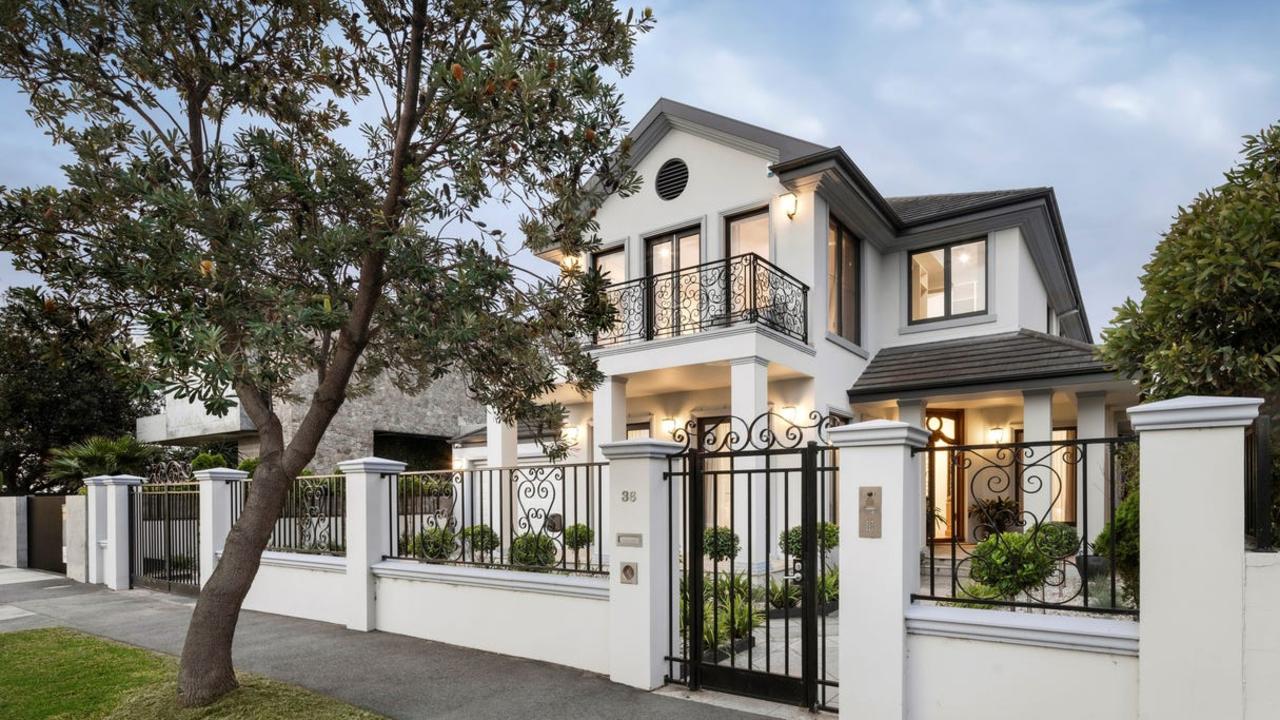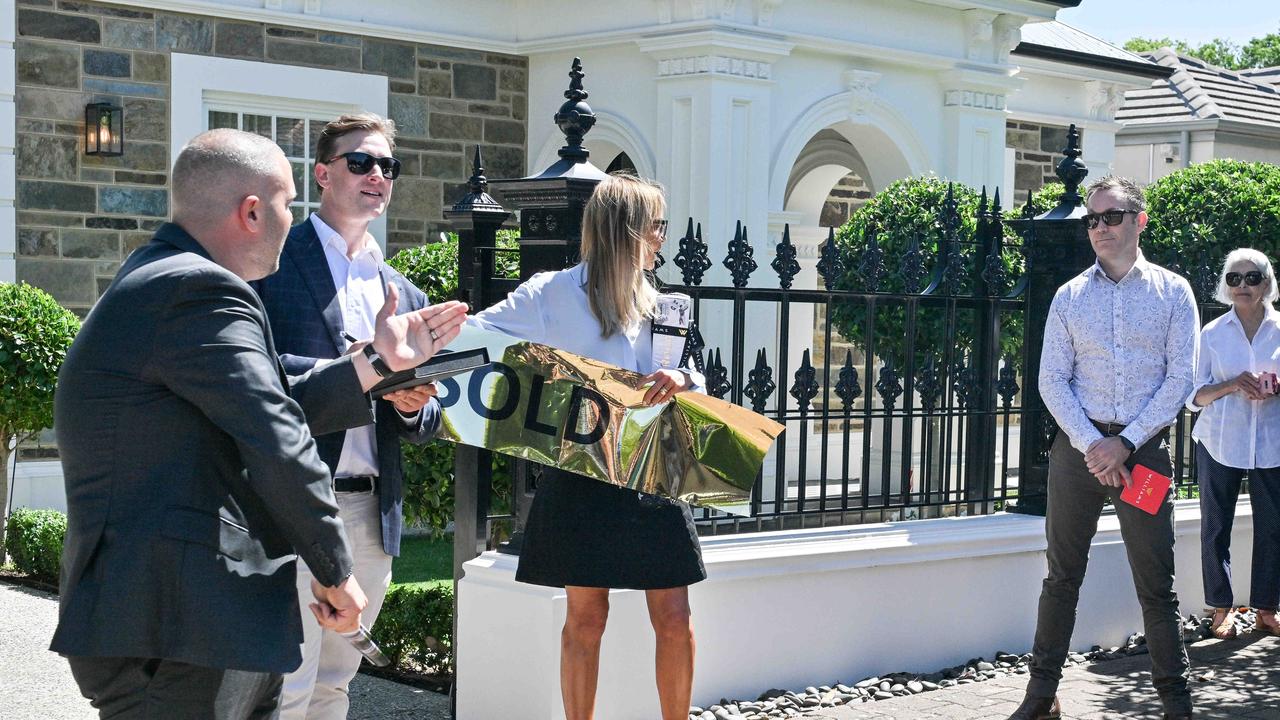Vicinity slaps Myer with lawsuit over unpaid rent at Melbourne flagship store
The department store has been slapped with a lawsuit by Vicinity Centres, landlord of its famed flagship store in the heart of Melbourne.

Shopping centre landlord Vicinity Centres has launched legal action against department store Myer over unpaid rent at its Melbourne flagship store in Bourke Street.
The dispute centres around claims that Myer did not pay $4.2m worth of outstanding rent on the one of the country highest profile city properties from the beginning of May to the end of October this year, partly overlapping with Melbourne’s most recent lockdown.
The legal action is one of the first major cases a large landlord has launched against a department store in the wake of the pandemic over rent, although rival Scentre Group, which runs the local Westfield empire, last year resorted to locking out Noni B owner Mosaic Brands and the Strandbags, before resolving rent disputes with them.
Vicinity’s scrap with Myer relates primarily to rent not paid during the most recent lockdown. Melbourne did not go into lockdown until July, and the landlord sent two demands to pay to the department store last month.
The legal action could have broader implications for both companies as Myer is an anchor tenant in many of Vicinity’s larger centres, although its importance has waned in recent years as it seeks to cut space.
The dispute could prove costly to Myer as it seeks to fend off a renewed challenge from Solomon Lew‘s Premier Investments and last week at that company’s annual meeting more than one third of voting shareholders backed a motion to dump the retailer’s board.
Vicinity is likely taking a harder line approach after Myer delivered record profits despite the crisis and other landlords are likely to follow suit if presented with non-payment by large chains, which are not protected under leasing codes directed at small businesses.
The lawsuit partly covers the time in which interests in the landmark Myer Melbourne building were traded. Charter Hall teamed up with Abacus Property Group to swoop on a two-thirds stake in the Bourke St building in July in a deal worth just over $270m. Vicinity stayed on owning one-third and as manager.
Vicinity, which is also half owner of the Melbourne’s massive Chadstone Shopping Centre, also delivered the shareholder meeting a tempered outlook on the reopening of its malls.
It flagged that its malls are filling up again but it has not restored earnings guidance. In contrast Scentre on Tuesday brought back its guidance as customers return to malls.
Vicinity chief executive Grant Kelley said at the company’s annual general meeting on Wednesday that the last quarter had been the most Covid-impacted since the beginning of the pandemic.
“It has also been a very active period in terms of delivery on strategy,” he said.
The company sold a stake in a Queensland subregional centre at Runaway Bay and bought a half interest in Harbour Town on the Gold Coast. “We have the balance sheet strength to withstand further potential trading disruptions, while pursuing our growth objectives,” Mr Kelley said.
“We are optimistic that positive momentum will continue in the second quarter in the lead up to the holiday period and with the resumption of interstate and international travel, but we nevertheless maintain a level of caution with the expected expiry of the respective SME codes of conduct, currently in effect in NSW and Victoria, in January 2022,” he said.
The company said due to ongoing uncertainty resulting from the pandemic, it “continues to withhold earnings guidance for fiscal 2022” but it will ””closely monitor prevailing conditions and will update the market if and when appropriate”.
The company is working new shops at Sydney‘s Bankstown Central ahead of future major mixed-use development. At Chadstone, leasing is well progressed on a planned new dining terrace and entertainment precinct. Both Chadstone and Melbourne’s Box Hill Central will soon have new commercial tenants.
Mr Kelley said in the first quarter of performance was hit by prolonged lockdowns in NSW and Victoria. But retail sales across the unaffected states remained strong and Vicinity had a rebound in visitation in NSW and Victoria as restrictions started to ease in October.
“During the second half of fiscal 2021, leasing activity highlighted the underlying resilience of the retail sector and this continued into the first quarter of fiscal 2022, especially in Victoria despite the lockdown period. Conversely, having been through its longest lockdown since the start of the pandemic, retailer confidence and leasing activity across NSW was negatively impacted during the quarter,“ Mr Kelley said.
Portfolio visitation fell to 55 per cent of pre-pandemic levels with NSW and Victoria hardest hit with visitation averaging about 19 per cent and half of pre-Covid levels, respectively.
Following reopening, centre visitation across NSW and Victoria has increased to 82 per cent and 93 per cent of 2019 levels. Fashion accessories and women’s apparel categories, and CBD locations, remain challenged by the pandemic.
Morgan Stanley analysts Simon Chan and Lauren Berry said rent collection for the quarter were 74 per cent as at late October, broadly in line with Scentre. But they said Vicinity was also seeing the NSW foot traffic recovery stalling at around 80 per cent of pre-pandemic levels, perhaps as CBDs lag.



